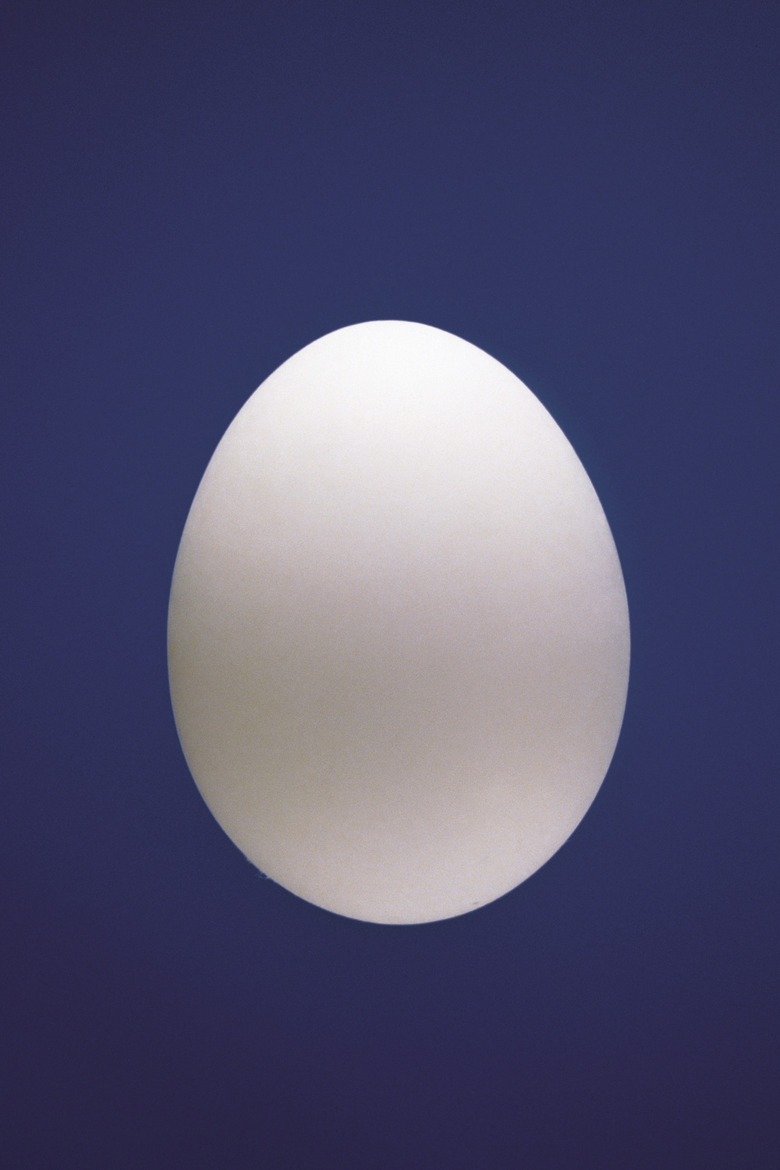Why Does An Egg's Shell Dissolve When Put In Vinegar?
Interesting and simple experiments with everyday items can help children learn science in a fun and educational way. One particularly interesting trick involves dissolving the hard outer shell of an egg by dissolving it in vinegar. This experiment is an easy way to teach children a lesson about chemistry.
The Raw Egg in Vinegar Experiment
The Raw Egg in Vinegar Experiment
Take a raw egg and place it in a jar or other container deep enough to submerge it the egg completely in liquid. Pour vinegar over the egg until it is covered. You will see bubbles forming on the egg's shell. Cover the jar and place it in the refrigerator for 24 hours. Carefully remove the egg from the jar using a a hard spoon and replace the vinegar in the jar. Place the egg back in the jar and cover it again. Put the jar back in the refrigerator, and wait another 24 hours. Take the egg out and rinse well. You will have a translucent egg with no shell, just a thin membrane.
The Hard-Boiled Egg in Vinegar Experiment
The Hard-Boiled Egg in Vinegar Experiment
The egg in vinegar experiment can also be done with a hard-boiled egg. Boil an egg for 10-12 minutes until it is hard-boiled. Place the egg in a jar, cover it with vinegar, and cover the jar. Place in the refrigerator for 24 hours, then replace the vinegar. Let the egg sit in the new vinegar solution in the covered jar for at least 24 hours (may take a few days). After you take the egg out and rinse it off, you will find that the shell is dissolved, and that your egg bounces.
How it Works
How it Works
Eggshells contain calcium carbonate, which reacts with an acid in vinegar called acetic acid. The acetic acid breaks up the calcium and carbonate, dissolving the shell. While the calcium floats away, the carbonate reacts with the acetic acid to create carbon dioxide. This is why you see bubbles on and around the eggs.
Other Liquids You Can Try
Other Liquids You Can Try
Any liquid that is acidic enough should be able to produce the same reaction. Try submerging an egg in cola, orange juice or rubbing alcohol.
Cite This Article
MLA
Johnson, Adam. "Why Does An Egg's Shell Dissolve When Put In Vinegar?" sciencing.com, https://www.sciencing.com/eggs-shell-dissolve-put-vinegar-10000674/. 24 April 2017.
APA
Johnson, Adam. (2017, April 24). Why Does An Egg's Shell Dissolve When Put In Vinegar?. sciencing.com. Retrieved from https://www.sciencing.com/eggs-shell-dissolve-put-vinegar-10000674/
Chicago
Johnson, Adam. Why Does An Egg's Shell Dissolve When Put In Vinegar? last modified March 24, 2022. https://www.sciencing.com/eggs-shell-dissolve-put-vinegar-10000674/
